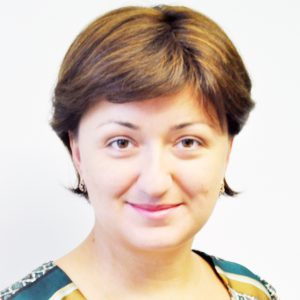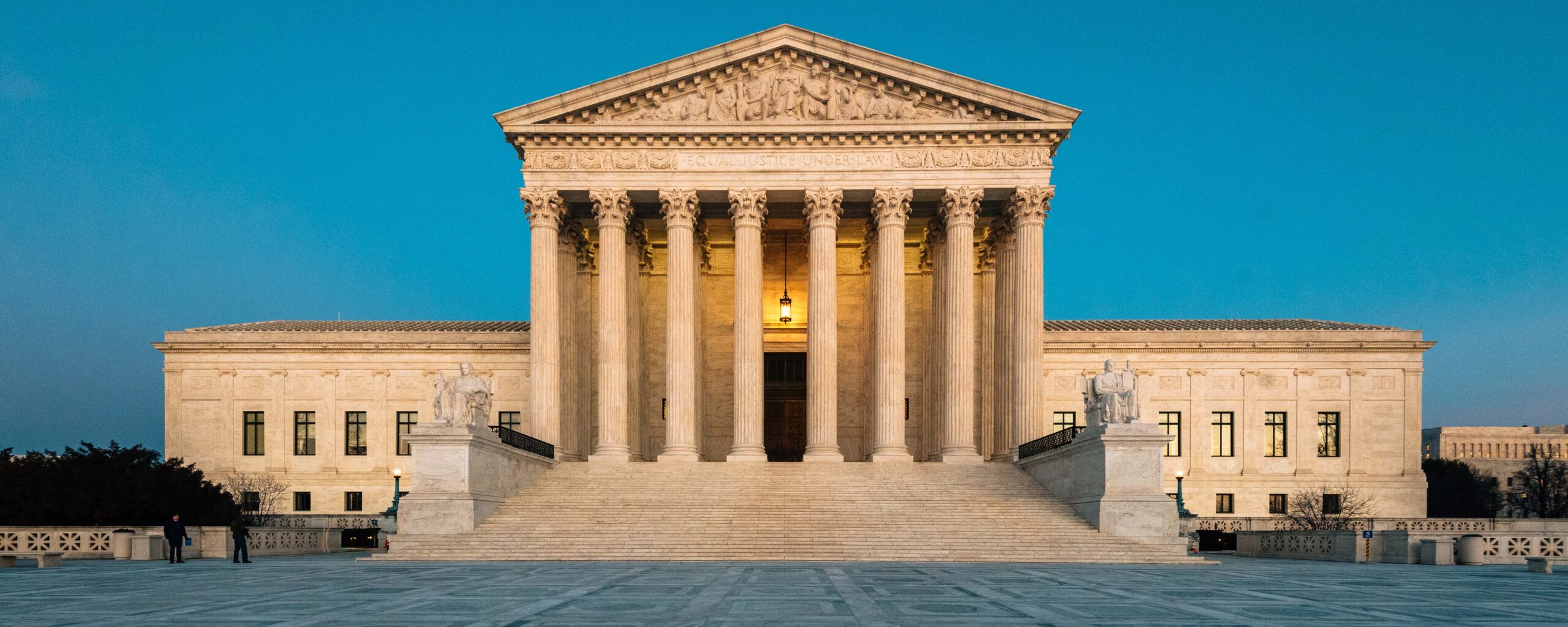Olga Kamenchuk, who has a Ph.D. in psychology, has been a visiting research scholar at the Annenberg Public Policy Center since October. She is usually based in Moscow, where she is Director on International and Public Affairs at VCIOM, the leading Russian opinion research center, and chairs the Sociology of Mass Communication department at MGIMO, the Moscow State University of International Relations. At APPC, she has been working with director Kathleen Hall Jamieson on political communication and studies.
How did you first become interested in studying communication?
I grew up in a very political household; my parents are history professors and in our home there was always a TV on, showing the news. My first degree was in history and when you study history you also study politics. My second degree, here in the United States, was in psychology, and the combination of the two grew into an interest in political communication. In Austria I studied international relations at the Diplomatic Academy of Vienna, so that’s how it all came together, not only political communication but also international issues.
What organizations do you currently work for?
Well, I work for VCIOM (Russian Public Opinion Research Center), a leading polling center in the former Soviet Union similar to what you know as Gallup. We do opinion research: electoral (ratings, indices and exit polls), marketing studies, as well as polling on social and economic issues. We have done nationwide opinion polls every week on about 50 to 60 questions covering various topics for over 25 years. Besides opinion polls we do focus groups, observations, desk studies, and so on. We are mostly known for our electoral research during presidential, parliamentary and regional elections, but this is only maybe 40 percent of what we do – the rest deals with studies for Russian and international businesses as well as international organizations and academia.
My interests are mostly within the sphere of political communication – this is also why I am on sabbatical here, at APPC. Polling is only one half of my job. I also work for MGIMO (Moscow State University of International Relations, part of the Ministry of Foreign Affairs in Russia), which is the leading university in the former Soviet Union for international relations. I am a chair of the sociology of mass communication department at the School of International Journalism there.
What are you working on at the APPC?
APPC has a very interesting study for international researchers to use the data from – the National Annenberg Election Survey. We at VCIOM also have a significant amount of data on various aspects of the electoral process. I am interested in running a comparative analysis using datasets from both. We are thinking of developing some joint studies on trust in political and social institutions in the U.S. and Russia, trust in the media, etc. We are also doing data collection in social media, which is a very new and quite interesting approach. Among the topics which interest me and my U.S. colleagues are various aspects of political communication, such as electoral debates and presidential addresses. For example, trust in electoral debates and generally in media coverage of electoral issues in Russia is not very high, though the media are among the most-trusted public institutions in the country. A small illustration – during the recent parliamentary elections, as well as the ones before them, the ruling party did not take part in the electoral debates, although polls showed that people think that it was the one winning them! Later on Mr. Putin refused, again, to take part in the debates in the course of the Presidential elections, but it didn’t affect his chances to win.
Where does the distrust come from? Is the source similar in both countries?
We have only recently begun to study the source of the distrust from a comparative perspective. As to the Russian case, there’s distrust for everything on the state level except for the president. He is viewed as a charismatic leader and he has especially seen a rise in support after the Olympic Games and now due to the situation in Crimea. Ninety-three percent of the Russian people support his actions in Crimea and his approval rating as President has risen to 66 percent. There might be a certain popularity decline after the effect of Crimea wears off, though. As to the trust in social institutions, the Orthodox Church is the leader in terms of the public trust, in second place is the military, and in third place is mass media. But that’s pretty much it. People don’t trust parties; they don’t trust trade unions, and so on. There are many reasons for this. Corruption is very common, and these institutions are generally ineffective. And there is the remaining post-Soviet mentality, common to the region.
Do you collect information about the public’s recommendations for improving state institutions?
This question is closely linked to the popular perceptions of the state in Russia. What is seen as the desired ideal? We have studied this phenomenon for decades and in the public’s view in Russia it usually means the two extremes – order or democracy. The general population thinks order cannot be part of democracy; they juxtapose those two.
So we asked the respondents, what is democracy? In the 1990s the Russian people had negative associations with it – democracy was associated with economic hardship and the collapse of a once-unified state, the USSR. But now, when people hear of democracy, they mostly think of freedoms: freedom of speech, freedom of expression, unions, and so on. But if they are asked to make a choice, people do not want democracy. They choose economic stability in the country, stable paychecks, food at home, the absence of crime and so on; they think this all cannot go along with or be a part of democracy. Unfortunately, they associate the relatively democratic 1990s with chaos and institutional and economic collapse.
When we do ratings of the most important problems to Russians, usually the top five are economic issues such as inflation or unemployment, and social problems such as alcoholism, drugs and crime rates, as well as bureaucracy and corruption. Democratic freedoms are usually somewhere around number 13 or 15! However, if you don’t have any food on your table to provide to your child, as it often happened, in Russia in early 1990s, would you think much of democracy? Most Russians know the reply to this question firsthand – they have experienced that. I would like to emphasize it does not mean I, personally, would go along with this reply, but this is what our respondents tell us.
Do you have a goal for your work and research?
Learning is a fun thing to do. I like the process, the results and the sharing of them with my colleagues and students. My major area of research interests are international communication as well as comparative applications of research done globally. I am also very much interested in enriching both my Russian colleagues and my American partners. I enjoy learning from the experiences of scientists here at APPC and am very proud to be a part of this team. Dr. Kathleen Hall Jamieson has amazed me with her sharp thinking, and I’ve enjoyed working with her colleagues as well. They are wonderful partners in research and, I hope, will become good friends for many more years in the future.


